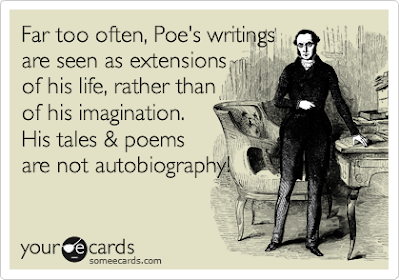
On this day in 1836, the publishing house Harper & Brothers sent Poe a letter declining to publish a collection of his stories. Along with the fact that most of the stories had already appeared in print, their “long experience” taught them that novels sold better than short tales. Worse still: “The papers are too learned and mystical. They would be understood and relished only by a very few--not by the multitude. The number of readers in this country capable of appreciating and enjoying such writings as those you submitted to us is very small indeed. We were therefore inclined to believe that it was for your own interest not to publish them.”
Considering that Poe is simultaneously one of the most widely read and most commonly misinterpreted authors in our history, this rejection slip could be seen either as ironically unperceptive or sadly prophetic.




























